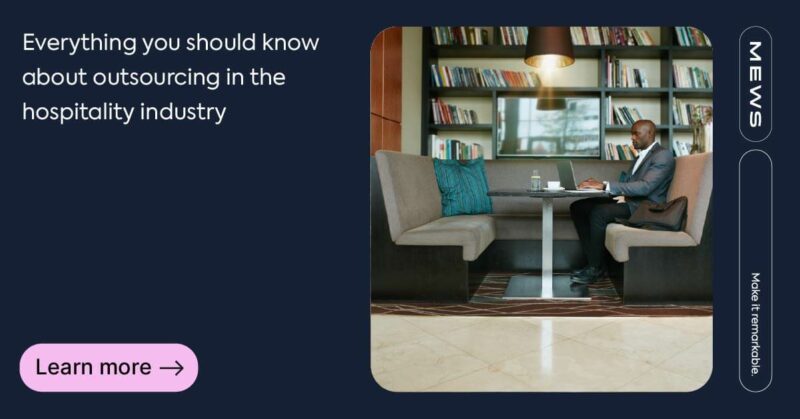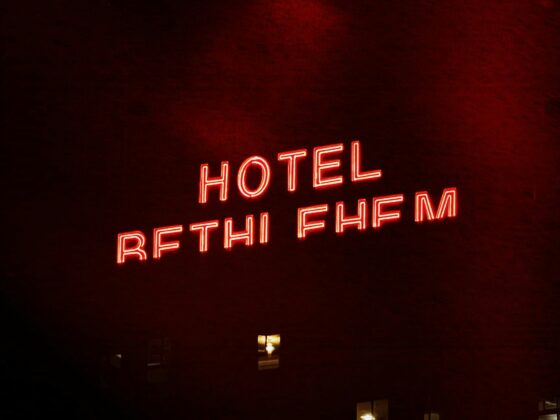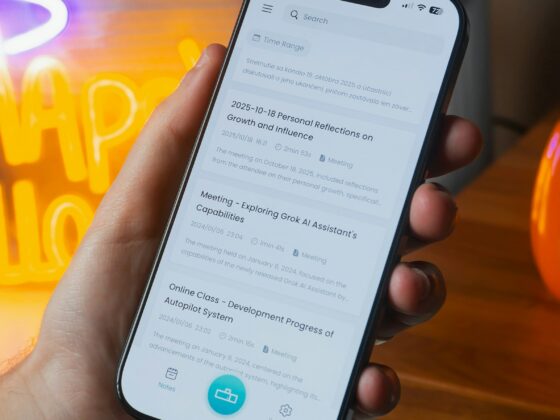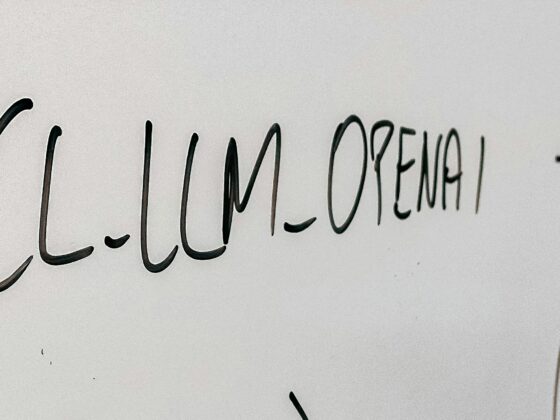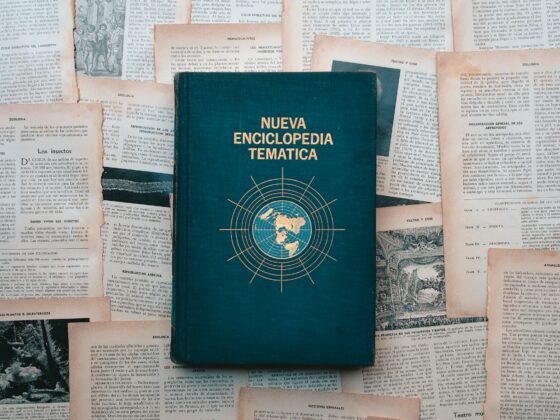To understand is to know what to do. – Ludwig Wittgenstein.
Special thanks to Propellic for sponsoring this edition of the newsletter:
While you’re still optimizing for keywords, Google’s AI is rewriting the rules of travel search. Our NavLog readers are ahead of the curve with Google’s AI search surfaces. Don’t get caught playing catch-up when your competitors are already adapting. Get the travel marketing intelligence that matters. → Join 1,500+ travel marketers.
1. The Charlie Munger Mindset: Design Against Human Error
Charlie Munger’s legendary talk, The Psychology of Human Misjudgment, was originally meant for investors, but it provides an essential roadmap for founders and entrepreneurs. By detailing 25 psychological tendencies, Munger shows why smart people make predictable errors. We should be aware of these biases and design products and companies that actively counteract them. Here are a few takeaways based on Munger’s key tendencies:
-
Your friends give you bad feedback. The Liking/Loving Tendency means your friends and early supporters will give you dangerously positive feedback. Useful feedback comes from strangers with no incentive to be nice.
-
Incentives drive everything: Munger warns that the Reward/Punishment Bias is always underestimated. Understand the incentives of every market participant (user, competitor, supplier) and design your product’s flow and revenue model to align the user’s long-term outcome with your financial incentives.
-
Fight your own ego. The Self-Regard Bias makes it impossible to kill your own ideas. Munger admired Darwin because he actively sought out facts that contradicted his own theories and wrote them down immediately. Build systems that force disconfirming evidence into the room.
-
Loyalty from failure: Your best moat can be great service during a crisis. Reciprocation and Kantian Fairness mean investing in recovery during high-stress moments builds vastly more loyalty than when everything is working smoothly. (Munger reminds us this tendency is so strong that a favor, even one with clear strings attached, creates an automatic bond.)
The full text with all 25 principles is worth a read and will help you design better systems by understanding how people actually think.
2. The art of procrastination
In this post, Paul Graham argues that since it’s impossible to work on everything, the question isn’t how to stop procrastinating, but how to procrastinate well. The most impressive people he knows are all big procrastinators, but they’re strategic about it. Graham defines three types of procrastination:
-
Type A: Doing nothing (paralysis). This is often rooted in fear or feeling overwhelmed by a large task. Overcoming it requires building momentum by breaking the goal down into extremely small, controlled starting steps.
-
Type B: Doing something less important (busy work): This is the most dangerous type. It involves completing low-leverage tasks (such as constant email checking) that give a false sense of accomplishment. The simplest test for this is: Will this task be mentioned in your obituary? If not, it’s stealing time from your mission.
-
Type C: Doing something more important (the good type of procrastination). When an individual avoids a small administrative task (like an errand) in favor of working on a more complex, higher-leverage problem, they are strategically prioritizing. Successful figures who eliminate small decisions (like wearing the same outfit daily) reserve their mental energy for their biggest goals.
Graham argues that real work needs two things that errands don’t: long stretches of time and the right mindset. Type C procrastination protects those conditions. By putting off small tasks, we can avoid the interruptions that break focus and kill momentum. Sometimes that’s the only way to carve out space for work that actually moves the needle.
Graham suggests asking “What’s the best thing you could be working on, and why aren’t you?” He advises that instead of letting a to-do list push you, you should let delight pull you into an ambitious project. If you are working on the biggest things you could be working on, you’re leaving the right things undone.
3. The cost of interruption
Context switching is the silent killer of deep work. Research from the University of California, Irvine (UCI) shows that constant digital interruption attacks your focus in a compounding, two-part cycle.
These studies, conducted over two decades ago (2004-2008) using IM and telephone interruptions in an office environment, are even more relevant now because our smartphones put the source of constant distraction right in our pocket.
The UCI results suggested that after a digital interruption, it takes over 23 minutes to fully reorient and regain deep concentration. That’s the baseline time lost. However, later UCI experiments found that when workers were constantly interrupted, they completed tasks faster than those who weren’t. This speed is forced compensation. Your brain attempts to beat the 23-minute reorientation cost by rushing, pushing you into a frantic, high-stress work mode that results in significantly higher frustration and mental effort. The consequence is that your brain trades mental stability for speed, which leads to burnout and compromises the quality of your output. The most vital strategic work requires mental stability, so we should be ruthless about carving out interruption-free blocks.
4. WeRoad on My First Million
I was listening to My First Million and was happy to hear them talk about WeRoad. Sam Parr described it as solving a loneliness problem for solo travelers (WeRoad segment from the episode). The company started in 2017 and is now doing over $100M in revenue ($160M projected for 2025), with 30% gross margins. They’re doing it with sharp packaging, smart ops, and community-first design.
WeRoad offers small-group, Millennial-only trips built around shared moods and travel styles such as Patagonia treks or cultural tours in Japan. Groups are 8 to 15 people, logistics are handled, and the trips are led by passionate travelers, not professional guides. The vibe is more like a group of friends than a traditional tour. Many come back with new best friends. Some come back in relationships.
There’s still room to rethink classic travel formats. Seniors have group tours. Students have options like EF and others. WeRoad tuned the model for a generation with disposable income, limited time off, and a desire for connection. A newer player, YourFriendsAreBoring, launched in 2022 and is exploring similar territory, starting with trips for people tired of group chat indecision and ready for real adventure. Whether you call that solving loneliness or just building community, it’s clearly working.
5. Agentic AI moves from demos to bookings
In a recent Travel Weekly piece, Robert Silk wrote about how agentic AI is starting to shape real traveler workflows. Perplexity’s Comet browser can already search for flights, fill in your personal info, and complete a booking without you lifting a finger. Hopper is using voice/chat to manage rebookings. SkyLink is building full itineraries for corporate travelers, factoring in policy and personal preferences.
Since that article, Google has launched its own set of agentic tools inside Search (link). It starts with Canvas, a new workspace that builds flexible, real-time trip plans using flight data, hotels, Google Maps info, and local suggestions. Their AI Mode can help you choose between tradeoffs (like proximity vs. price), remember where you left off, and refine plans over time. There’s also a new Flight Deals feature that shows low fares based on broad prompts like “somewhere warm in February.” It currently stops short of handling bookings directly, but Google says its AI will soon be able to complete flights and hotels as well, thanks to new partnerships with Booking.com, Marriott, Expedia, and others.
Agentic AI is moving to becoming a default interface. Some tools still pause at checkout and others don’t, but the search–plan–book gap is closing.
6. Inside the Marriott–Sonder collapse
Last year, Marriott partnered with Sonder to add 9,000 apartment-style rentals to its platform. Guests could earn Bonvoy points and Marriott could boost inventory without building more hotels. This month, the partnership imploded: guests were suddenly told to vacate, and digital keys stopped working. Marriott says it had already sent Sonder $1.5 million just to cover a week of payroll and taxes. Now it’s in court trying to recover $17.7 million.
The WSJ has the full story, including how the deal came together, why Sonder ran out of runway, and what it signals for asset-light inventory models.
7. Since the launch of ChatGPT…
On November 30, 2022 OpenAI launched ChatGPT, marking the start of the generative AI boom. AI has reshaped investor expectations across every sector. Since then, the gatekeepers (Google, Microsoft) and the enabler (Nvidia) have surged. Expedia, Booking, and MakeMyTrip have roughly 2.5x’d since launch, while Tripadvisor and eDreams are now in the red.
8. When founders watch from the sidelines
Chip Wilson, founder of Lululemon, no longer runs the company, but in a full-page ad in the Wall Street Journal, he laid out precisely what he thinks is going wrong and painted a vision of where the brand could go. Agree with him or not, it’s a sharp contrast to the polite silence most ex-founders keep. Maybe more should speak up when the companies they built start going off track. This ad had more strategic clarity than any media or investor analysis I’ve seen on Lululemon.
9. Low-Cost flights and high-impact memes
Europe’s top low-cost airline keeps winning on social media by staying irreverent and refusing to take itself too seriously.

10. Flygaroo is live on Kickstarter (with a Travel Tech Essentialist perk)
Back in August, I shared the story behind Flygaroo, a vest built to avoid the costly baggage fees by turning your torso into extra carry-on space. After flying 40+ low-cost routes, founder Nicolas Gutierrez de Esteban decided there had to be a smarter way to travel light without paying high fees.
Now it’s live on Kickstarter and already fully funded, but they’ve added a special Travel Tech Essentialist–only reward tier with €60 off retail. Same deal they offered in the first 24 hours (which sold out fast), now unlocked again for us.
(Waiting to see if Ryanair’s social team has thoughts on this one.)
2026 Travel Tech Essentialist Newsletter Sponsorship Opportunities
A few slots are still open for 2026. If you’re looking to reach a focused audience of travel tech professionals, I recommend filling out this short form soon.
Travel Tech Essentialist Job Board
→ Explore all 1422 open roles on the Travel Tech Essentialist Job Board now.
-
Fora | General Manager – Mexico | New York City | $150k-$180k + Equity
-
Expedia |Director, Loyalty Strategy | Seattle | $197k-$275,500
-
WeRoad | Digital Acquisition Manager | Milan
📩 For monthly updates on the latest roles, subscribe to the Travel Tech Jobs newsletter
Raising a round?
If you are a startup looking to raise a round (from pre-seed to Series D), I can help (for free). Travel Investor Network is a private platform where I recommend innovative travel startups to investors and innovators. If you’re interested, please start by completing this form.
If you like Travel Tech Essentialist, please consider sharing it with your friends or colleagues. If you’re not yet subscribed, join us here:
And, as always, thanks for trusting me with your inbox.
Mauricio Prieto



